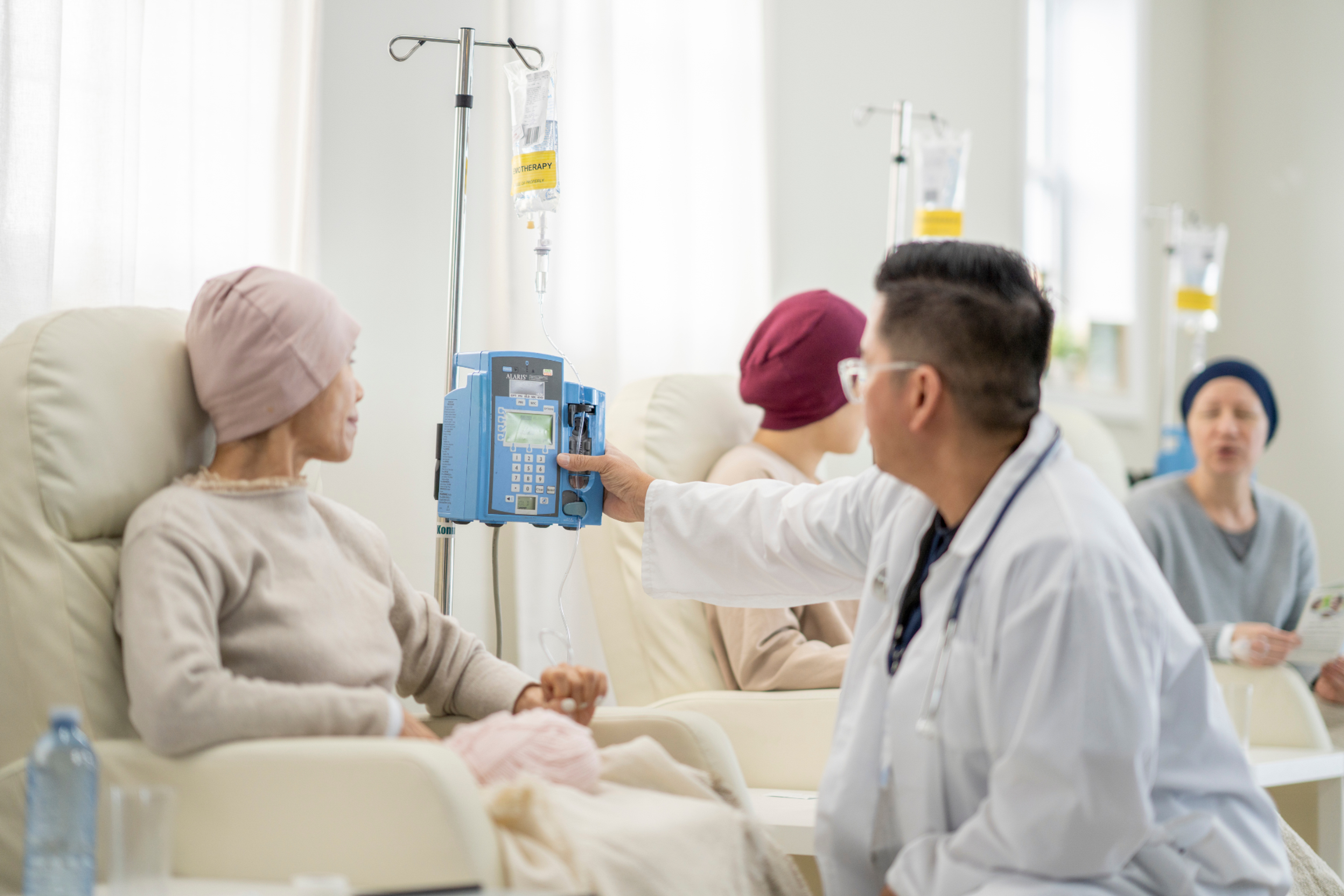Johns Hopkins Medical School Acceptance Rate: Admission Insights and Tips
Discover the admission insights and tips to increase your chances of getting accepted into Johns Hopkins Medical School.
Posted June 13, 2025

Join a free event
Learn from top coaches and industry experts in live, interactive sessions you can join for free.
Table of Contents
If you are considering applying to medical school, you have undoubtedly heard of Johns Hopkins Medical School. Ranked as one of the top medical schools in the nation, Johns Hopkins is a highly competitive institution that receives thousands of applications each year. So, what is the acceptance rate at Johns Hopkins Medical School, and what factors contribute to your chances of getting accepted? In this article, we will explore everything you need to know about the Johns Hopkins Medical School acceptance rate, admission insights, and tips.
Why Johns Hopkins Medical School is a Top Choice for Medical Students
Johns Hopkins Medical School has a reputation for excellence in medical education, research, and patient care. Its faculty is composed of world-renowned experts in their fields, and its graduates have gone on to excel in medical practice, research, and leadership. The school's diverse community of students and faculty creates a stimulating and supportive learning environment that provides a foundation for success in any medical career.
What is the Acceptance Rate at Johns Hopkins Medical School?
Johns Hopkins Medical School is one of the most selective medical schools in the country. In recent years, the acceptance rate has been around 3%. But don't let this discourage you- there are many factors that can influence your chances of getting accepted. Let's explore some of these below.
Factors that Affect Your Chances of Getting Accepted to Johns Hopkins Medical School
At Johns Hopkins Medical School, admissions decisions are based on more than just GPA and MCAT scores. Admissions officers look for applicants who are well-rounded and have a strong commitment to medicine. Here are some factors that can affect your chances of getting accepted:
- Academic performance: While your overall GPA is important, admissions officers also look at your grades in individual science courses, particularly biology, chemistry, and physics. Your MCAT score is also important, although there is no minimum score requirement.
- Extracurricular activities: Admissions officers want to see that you have a strong commitment to medicine beyond the classroom. This can include research experience, volunteering at a hospital or clinic, or leadership roles in a pre-medical organization.
- Letters of recommendation: Strong letters of recommendation can make a big difference in your application. Admissions officers want to see letters from professors or supervisors who can speak to your academic abilities, work ethic, and personal qualities that make you a good fit for medical school.
- Personal statement: Your personal statement is an opportunity to showcase your personality, experiences, and motivation for pursuing a career in medicine. Admissions officers are looking for applicants who are passionate about medicine and can articulate why they want to attend Johns Hopkins Medical School specifically.
How to Improve Your Chances of Getting Accepted to Johns Hopkins Medical School
While competition for admission to Johns Hopkins Medical School is fierce, there are steps you can take to improve your chances of getting accepted:
- Focus on your grades: Do your best to excel in all of your science courses and maintain a high GPA. Consider taking advanced courses in biology, chemistry, or physics to challenge yourself.
- Get involved in extracurricular activities: Look for opportunities to gain experience in research, community service, or leadership roles. Choose activities that align with your interests and demonstrate your commitment to medicine.
- Prepare for your MCAT: Take advantage of MCAT prep courses or study materials to help you achieve the best possible score.
- Seek out strong letters of recommendation: Build strong relationships with your professors or supervisors and ask for letters of recommendation well in advance of the application deadline.
- Craft a compelling personal statement: Spend ample time brainstorming and writing your personal statement. Share your unique story and why you believe Johns Hopkins Medical School is the right fit for you.
Tips for Writing a Strong Application Essay for Johns Hopkins Medical School
Your personal statement is one of the most important parts of your application to Johns Hopkins Medical School. Here are some tips for crafting a strong essay:
- Start early: Give yourself plenty of time to brainstorm, write, and revise your essay.
- Show, don't tell: Use concrete examples from your experiences to showcase your personal qualities, rather than simply telling the admissions committee about them.
- Be yourself: Your personal statement should be a reflection of your unique personality and experiences. Don't try to sound like someone you're not.
- Proofread: Carefully proofread your essay for spelling and grammatical errors. Consider having a friend or advisor read it over as well.
The Importance of Letters of Recommendation in the Application Process
Letters of recommendation are an important part of your application to Johns Hopkins Medical School. Here are some tips for securing strong letters:
- Choose your recommenders wisely: Look for professors or supervisors who know you well and can speak to your academic abilities and personal qualities that make you a good fit for medical school.
- Ask early: Give your recommenders plenty of time to write the letters and be sure to provide them with any information they may need.
- Provide context: Give your recommenders some context for your goals and experiences to help them write a more effective letter.
- Thank your recommenders: Be sure to thank your recommenders for their time and effort, whether you are accepted or not.
How Extracurricular Activities Can Boost Your Chances of Acceptance to Johns Hopkins Medical School
Extracurricular activities are an important part of building a strong application to Johns Hopkins Medical School. Here are some reasons why:
- They demonstrate your commitment to medicine: Admissions officers want to see that you have taken steps beyond the classroom to pursue your interest in medicine.
- They showcase your skills and abilities: Extracurricular activities can help you develop skills that are important for success in medical school, such as leadership, teamwork, and communication.
- They create opportunities for mentorship: Getting involved in research or volunteering can provide you with opportunities to work closely with faculty or other medical professionals who can serve as mentors or provide letters of recommendation.
Common Mistakes to Avoid When Applying to Johns Hopkins Medical School
When applying to Johns Hopkins Medical School, there are some common mistakes that applicants make that can hurt their chances of getting accepted. Here are some things to avoid:
- Submitting a sloppy or incomplete application: Take the time to carefully review your application materials and make sure everything is complete and error-free.
- Overemphasizing your MCAT score: While your MCAT score is important, it is just one part of your application. Don't rely solely on your score to get accepted.
- Disregarding the school's mission and values: Do your research and make sure your application and personal statement align with the values and mission of Johns Hopkins Medical School.
- Forgetting to follow up: After submitting your application, be sure to follow up with the admissions office to confirm that everything has been received and to express continued interest in the school.
Interviews at Johns Hopkins Medical School: What You Need to Know
If you are selected for an interview at Johns Hopkins Medical School, congratulations! Here are some tips for preparing:
- Research the school: Make sure you are familiar with the school's mission and values and can articulate why you want to attend.
- Practice answering common interview questions: Prepare answers to questions about your motivations for pursuing medicine, your experiences, and your personal qualities.
- Dress professionally: Present yourself in a professional manner to make a good impression.
- Be yourself: The interview is an opportunity for the admissions committee to get to know you as a person. Don't try to sound like someone you're not.
Stories from Successful Applicants: How They Got Accepted to Johns Hopkins Medical School
Finally, let's hear from some successful applicants who have been accepted to Johns Hopkins Medical School. Here are some tips and insights they have shared:
- Put in the time and hard work: Successful applicants emphasized the importance of putting in the effort to excel academically, gain experience through research and volunteering, and prepare thoroughly for the MCAT.
- Be yourself: Successful applicants emphasized the importance of being authentic in their application materials and during the interview process.
- Show your passion for medicine: Successful applicants demonstrated a deep commitment to medicine and a clear understanding of why they wanted to attend Johns Hopkins Medical School specifically.
What Happens After You Get Accepted to Johns Hopkins Medical School
Congratulations! If you have been accepted to Johns Hopkins Medical School, you have achieved an incredible accomplishment. Here's what to expect:
- You will receive an acceptance letter outlining the terms of your admission and any financial aid that has been awarded.
- You will need to accept or decline the offer of admission by the deadline specified in the acceptance letter.
- You will need to complete any pre-matriculation requirements, such as submitting transcripts or immunization records.
- You will attend orientation and begin your medical education!
In conclusion, getting accepted to Johns Hopkins Medical School is a highly competitive process, but it is achievable with dedication, hard work, and a strong application. By following the tips and insights shared in this article, you can increase your chances of success and begin your journey toward a rewarding career in medicine.
Browse hundreds of expert coaches
Leland coaches have helped thousands of people achieve their goals. A dedicated mentor can make all the difference.















